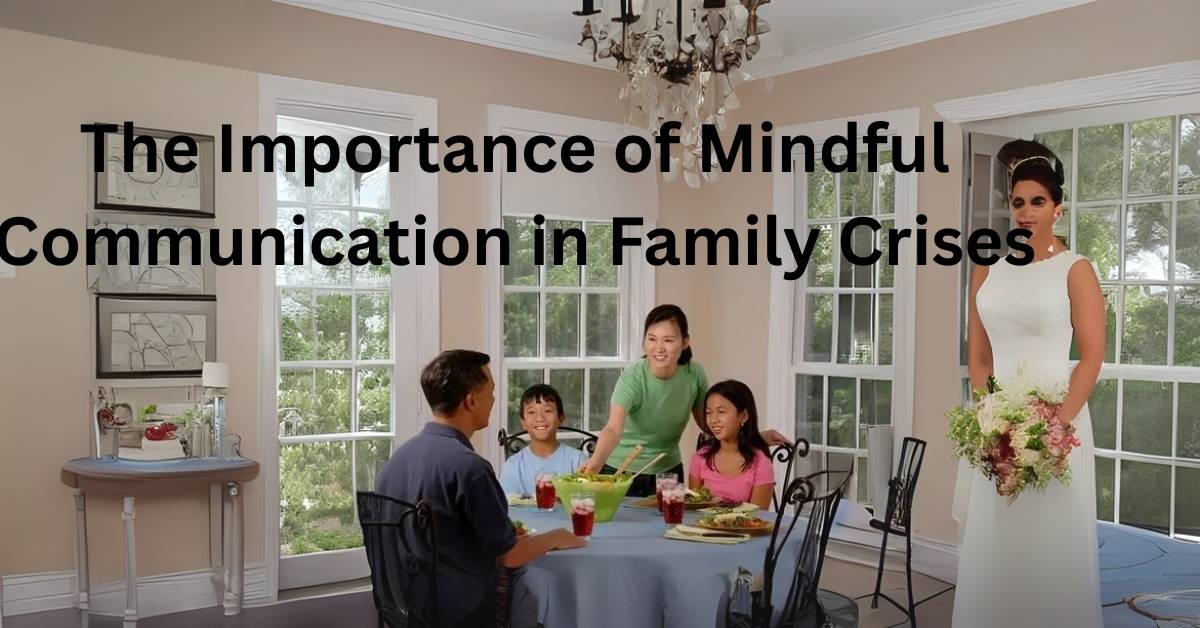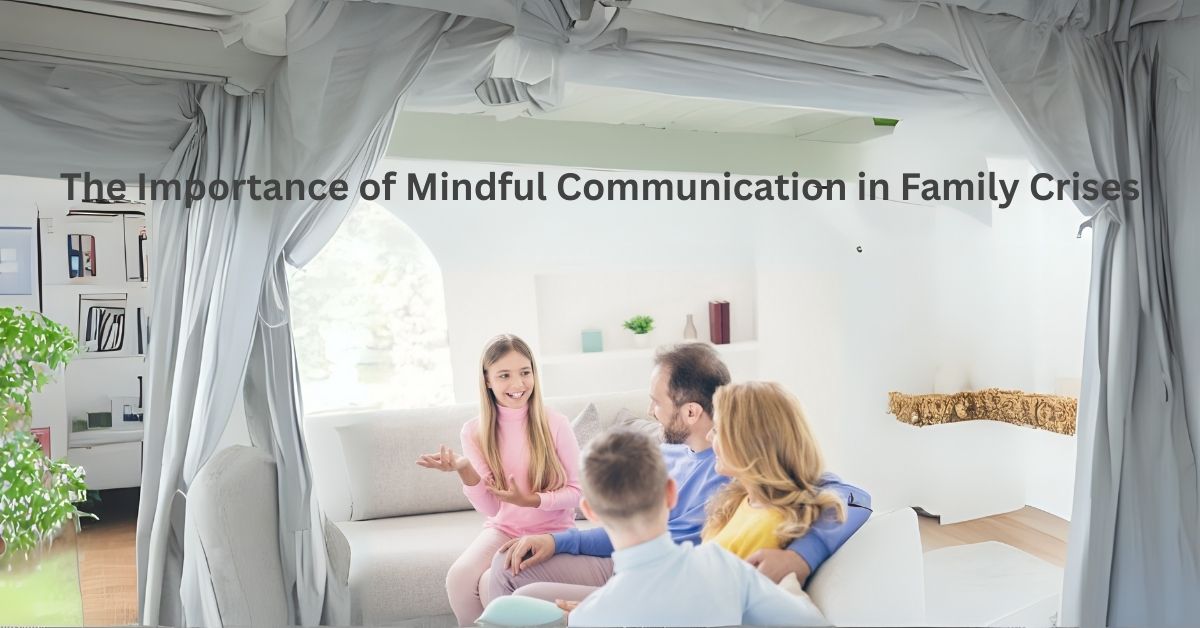Family crises can happen at any moment. Mindful communication in family crises helps you respond clearly and calmly. When a sudden illness, accident, or unexpected event occurs, choosing your words carefully reduces stress and confusion. It ensures everyone understands the situation and can act quickly.
Using mindful communication in family crises also protects relationships. You can inform family, friends, or coworkers without causing unnecessary panic. Clear messages about urgent situations, personal crises, or sensitive matters make a big difference. Whether it’s notifying a parent, spouse, sibling, or supervisor, practicing mindful communication in family crises keeps everyone informed and supported.
Navigating the Spectrum of Urgent Family Situations
Not all family emergencies are the same. Some require immediate attention, while others are less urgent but still demand careful consideration. A personal crisis, sensitive matter, or unexpected event at home may require you to call, email, or notify family members or colleagues. Being able to identify the severity of the situation allows you to respond appropriately, whether that means requesting time off, arranging backup plans, or preparing medical notes and legal proof for your workplace.
In addition, the people you involve vary. You might contact a doctor, lawyer, counselor, caregiver, or neighbor depending on the scenario. Knowing who to communicate with and when ensures that no one is left uninformed. Whether the situation involves **bereavement, hospitalization, surgery, or a minor household problem, clear communication ensures that urgent matters are handled efficiently without causing unnecessary panic.
Immediate Family Crisis: When Every Second Counts
An immediate family crisis is one where every second matters. Events like a sudden illness, accident, or house fire require fast, precise communication. You might need to report, request, or notify several people at once, from family members to your manager or team lead. The goal is to ensure urgent care is delivered while everyone remains safe and informed.
In these situations, panic can spread quickly. Mindful communication means staying calm, using clear language, and providing just enough information to convey urgency. For example, you might need emergency contact details, HR handbook guidelines, or company rules to request paid leave or flexible hours. Proper phrasing prevents misunderstanding and allows both professional and personal obligations to be handled smoothly.
Critical Household Event: Home-Centered Urgencies
A critical household event like home damage, a natural disaster, or a sudden injury affects everyone in the home. It’s important to communicate promptly but effectively, ensuring all involved know their role in resolving the situation. Whether it’s calling a doctor, counselor, or emergency services or alerting a neighbor or caregiver, clear and concise language can prevent chaos.
In professional contexts, you may also need to submit, approve, or discuss leave requests with your employer. Mindful communication here balances urgency with respect for workplace policy, ensuring that both family and work responsibilities are addressed without unnecessary stress.
also reaide: other ways to say happy friday
Pressing Domestic Situation: Balancing Urgency and Privacy
Some situations require urgency but also discretion. A pressing domestic situation could involve a health crisis, financial hardship, or property loss. When communicating with coworkers or supervisors, it’s essential to maintain privacy while highlighting importance. Phrases like personal crisis requiring attention or urgent private matter help convey the message without oversharing sensitive details.
At home, however, clarity is more important than discretion. When informing, updating, or arranging care for a parent, spouse, or child, using clear, compassionate communication ensures that everyone understands the situation and can act accordingly. This approach reduces stress and fosters collaboration.
Time-Sensitive Family Matter: Emphasizing Urgency Without Alarm

Some family matters require quick action but aren’t life-threatening. For example, arranging **child care, attending a funeral or memorial service, or handling legal matters like custody or adoption requires prompt communication. The goal is to emphasize urgency without causing panic or alarm.
Using mindful communication in these scenarios means choosing words that are clear but calming. You might notify your supervisor of the need for time off or shift coverage, while simultaneously updating family members on hospital visits or therapy sessions. Maintaining balance prevents misunderstandings and ensures responsibilities are met.
Unavoidable Personal Emergency: The Catch-All with a Personal Touch
An unavoidable personal emergency may include events like bereavement, sudden illness, or eviction. These situations require a balance between urgency, empathy, and discretion. Communicating promptly to both family and workplace ensures the situation is managed smoothly.
You might need to call, email, or update a manager, HR department, or team lead. At the same time, informing close relatives like grandparents, in-laws, or guardians is essential. Mindful phrasing helps maintain relationships while addressing urgent obligations effectively.
Health-Related Scenarios: Communicating Care and Concern
Health-related family crises demand sensitivity and clarity. Communicating about a family health concern, whether a medical condition at home or family member hospitalized, requires compassion and precision. You may need to document, verify, or schedule appointments, ensuring urgent care is received promptly.
Family Health Concern: When Wellness Takes Priority
Prioritizing health means focusing on communication that reflects care and urgency. Notify relevant parties such as doctors, caregivers, or neighbors, using clear and concise language.
Medical Situation at Home: Emphasizing the Domestic Nature
For non-critical medical issues, communicate effectively with family while keeping professional contacts informed only as necessary.
Urgent Care Required for a Relative: Specifying Without Oversharing
Communicate urgency using phrases that convey seriousness but protect privacy.
Family Member Hospitalized: Clear and Concise
A hospitalized family member requires careful updates, ensuring supervisors and co-workers understand the situation without unnecessary detail.
Health Crisis in the Household: Conveying Severity
Use clear words to express the seriousness while keeping messages compassionate and structured.
Unexpected Events: Communicating Sudden Changes

Life is unpredictable, and sudden family changes demand flexible communication. A sudden family development, unforeseen domestic issue, or unexpected familial obligation requires tactful phrasing and prompt notification.
Sudden Family Development: The Element of Surprise
Highlight the change calmly, providing necessary instructions without alarm.
Unforeseen Domestic Issue: Home-Centered Surprises
Whether it’s a house fire, property loss, or minor accident, clear communication ensures appropriate action is taken.
Unexpected Familial Obligation: Duty Calls
Convey responsibility respectfully and clearly, whether it’s for work or home.
Abrupt Change in Family Circumstances: Emphasizing the Shift
Use neutral or positive phrasing to reduce stress and ensure understanding.
Surprise Situation with Relatives: Extended Family Matters
Inform extended family promptly while balancing urgency and emotional sensitivity.
Serious but Less Urgent Matters: Balancing Importance and Time
Some family events are important but not urgent. Examples include significant family events, important familial commitments, and crucial family business. Clear communication ensures priorities are understood while preventing unnecessary panic.
Significant Family Event: Marking Important Milestones
Celebrate milestones while keeping logistics clear for family members.
Important Familial Commitment: Emphasizing Responsibility
Highlight obligations such as attending memorial services or legal appointments.
Crucial Family Business: Highlighting Family Priorities
Focus on the core priority and communicate it to those involved.
Pressing Matter at Home: Domestic Focus
Even small urgent issues require clear communication to prevent escalation.
Vital Family Obligation: Duty-Bound
Respectfully convey responsibility and importance to all parties.
Discreet Alternatives: Maintaining Privacy in Professional Settings
Sometimes discretion matters more than detail. Terms like personal situation requiring attention, urgent private matter, and confidential family affair allow you to communicate professionally while protecting privacy.
Personal Situation Requiring Attention: Vague yet Respectful
Use minimal detail to signal importance without oversharing.
Urgent Private Matter: Emphasizing Confidentiality
Maintain confidentiality while indicating urgency to the relevant parties.
Confidential Family Affair: Balancing Information and Privacy
Protect sensitive information in the workplace while ensuring proper communication.
Sensitive Home-Related Issue: Domestic Focus with Discretion
Carefully frame domestic issues in a professional and respectful way.
Discrete Personal Emergency: Urgency Without Details
Highlight urgency without revealing sensitive information.
Professional-Sounding Options: Formal Alternatives for Work Settings
In formal settings, precise language communicates seriousness. Terms like familial contingency, domestic exigency, household priority situation, family-related urgency, and critical personal circumstance convey urgency and professionalism without oversharing.
Familial Contingency: Formal and Flexible
Useful for notifying HR or supervisors.
Domestic Exigency: Urgent Home Matters
Professional phrasing for urgent domestic situations.
Household Priority Situation: Home-Centered Urgency
Clear, structured communication in formal contexts.
Family-Related Urgency: Clear and Professional
Emphasizes responsibility and professionalism simultaneously.
Critical Personal Circumstance: Serious Without Specifics
Communicates urgency without revealing unnecessary personal details.
How to Use These Phrases Effectively: A Guide to Thoughtful Communication
Choosing the right phrase depends on severity, audience, and context. For example, when a family member is hospitalized, phrases like urgent care required for a relative are clear and compassionate. Always consider the relationship, whether professional, familial, or social, and balance privacy with the need to inform.
Matching the Phrase to the Situation’s Severity
Minor issues like household problems need less urgent phrasing, while bereavement or surgery demands clarity and empathy.
Considering Your Audience and Relationship
Adjust wording for coworkers, supervisors, or close relatives.
Balancing Privacy with Necessary Information
Maintain discretion without leaving essential details out.
The Impact of Word Choice: Crafting Compassionate Communication
Mindful words can reduce stress, promote understanding, and maintain relationships.
How Different Phrases Affect Perception
Formal or casual phrasing influences how others respond to your emergency notification.
Cultural Considerations in Expressing Family Emergencies
Be aware of American cultural norms around urgency, privacy, and respect.
The Importance of Tone in Communication
A calm, clear, and empathetic tone prevents panic and encourages cooperation.
Conclusion
In family emergencies, mindful communication in family crises is a must. You must speak clearly and calmly. You must share important details without causing panic. Mindful communication in family crises helps family members, friends, and coworkers understand what is happening. You must use simple words and short sentences.
Practicing mindful communication in family crises is a must for every family. You must think about your audience and what they need to know. Mindful communication in family crises ensures support, quick action, and less stress. You must balance urgency with care. Always remember, mindful communication in family crises is key in tough times.

Grammerroot is your trusted source for mastering English grammar and language skills. From simple rules to advanced tips, we help learners build strong foundations through easy-to-understand content. Learn smart, learn right — only at Grammer Root.




